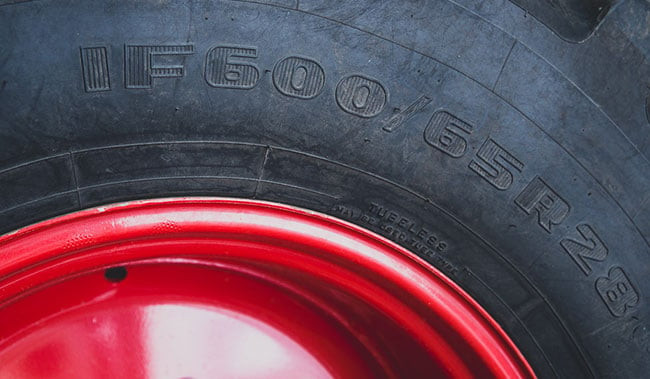Decree no. 2015-1003 of 18 August 2015 of the French Environment Code on the recycling of used tyres, which is often ignored by farmers, is extremely clear!
 To help farmers out, the biggest tyre manufacturers and importers in France established Aliapur, an environmental organisation responsible for collecting used tyres. In 2014 alone, 41.5 million tyres were collected nationwide. The company then recycles them by using them in other products.
To help farmers out, the biggest tyre manufacturers and importers in France established Aliapur, an environmental organisation responsible for collecting used tyres. In 2014 alone, 41.5 million tyres were collected nationwide. The company then recycles them by using them in other products.
Tyres that have reached the end of their service life still have a number of useful properties, such as elasticity, structural solidity and high carbon content, meaning they are considered a high-quality raw material.
This is a treatment and transformation process that enables the tyre to be used in another form (e.g. shreds, granules or crumbs). This type of recycling is commonly used in the manufacture of car parts, athletics tracks or children's playgrounds. More than 43% of collected tyres are sent for "material recycling".
This is when shredded, damaged and whole tyres are used as a substitute fuel for energy production. The tyre's calorific power provides the energy to generate heat and electricity. Almost 41% of collected tyres are used for "energy recycling". This energy is commonly used in the cement industry when producers want to reduce their fossil fuel use. Urban heating is the second main application of "energy recycling".
One of the main drivers behind recycling, 16% of collected tyres are reused, if the regulatory wear threshold has not been met.
If the tread is deemed defective or too old, Aliapur inspects the tyre's structure and, if it's in good condition, supplies a new tread (re-treading).
To learn more and boost your farm's profits, Bridgestone Agriculture is offering you a free, detailed eBook that explains the essential role your agricultural tyres play in your productivity.
The most people who have read this article have also read the following articles, which are listed below in order of popularity:
This information is intended only to make you aware of the technical and functional aspects of agricultural tires and their use. It does not allow you to make a judgment or a definitive conclusion on a given problem. Only your agricultural tire expert is able to make a technical assessment and take a final decision, case by case.

BRIDGESTONE EUROPE NV/SA
AG Department
Leonardo Da Vincilaan 1
1930 Zaventem | Belgium
Our regional office:
Athena Drive, Tachbrook Park
Warwick CV34 6UX
United Kingdom